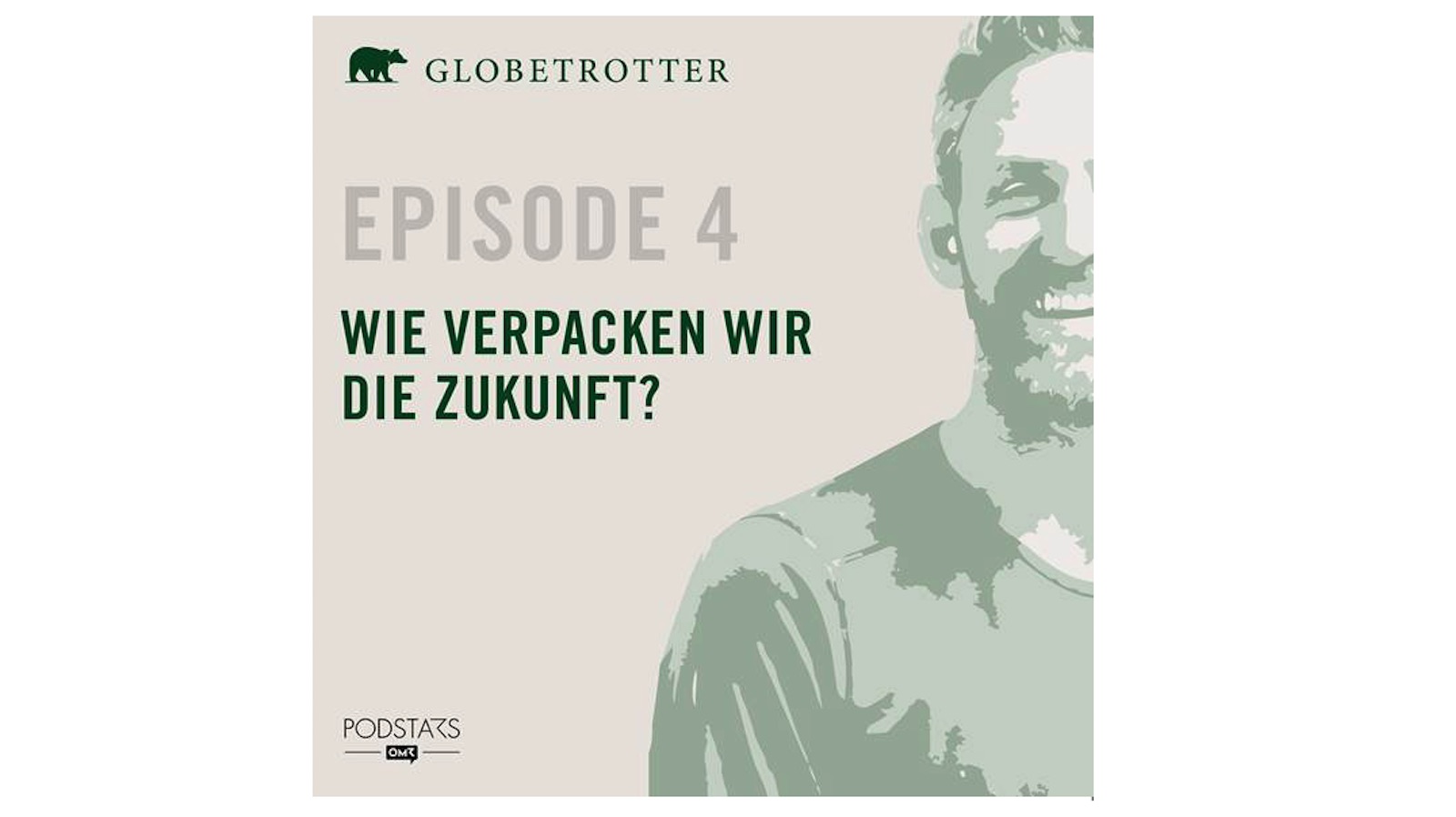In the current episode, we’re talking about packaging. Packaging is used in so many ways and so many places: as logistics packaging for transport from the manufacturer to the brand and to the retailer, in the form of polybags – i.e. these transparent plastic bags – as protection close to the product, as product packaging like hang-tags etc. and also in e-commerce as outer packaging, when the product is sent to customers.
According to Eurostat, the Federal Statistical Office, there are 77.5 million tons of packaging waste in the EU every year, that is 175 kg per capita every year. Germany is at the top with 220 kg per capita. Plastic accounts for around 20% of this figure and cardboard for around 40%. In our industry, too, packaging is used in various places and thus packaging waste is generated.
And that’s why we invited interesting people from the outdoor industry to speak about the various areas in which packaging plays a role, and who share with us their strategies, ideas and approaches.
You can listen to the german podcast on all major platforms and on the globetrotter website.
Since the beginning of 2019, Arne has been the general secretary of the European Outdoor Group, which is the industry association of outdoor brands. He is also Marketing Director of It’s Great Out There Coalition.
“Plastic is not the ultimate solution, but for some specific applications it is currently the most environmentally friendly material on the planet. As long as it doesn’t contaminate nature. So, until we have alternatives, we have to treat it as a valuable resource and recycle it, not just throw it away as waste.”
The Single Use Plastic Project
Humanity produces 300 million tons of plastic worldwide every year, half of which is single-use, i.e. single-use plastic, which is mostly used for packaging. In the EU, according to Eurostat, there are 15.5 million tons of plastic packaging waste annually, but just 42% of it is recycled. So a lot of usable material is still being lost.
In order to improve this recycling rate, the outdoor industry launched an initiative in 2017 with the Single Use Plastic Project to specifically deal better with the polybags that are used when shipping goods.
And as a result of this work, the “Polybag Standard” has been published last month to help reduce the impact of plastic bags in the entire value chain.
Andy Schimeck has been in the outdoor industry for over 30 years and currently holds the position of Global Sales Director at Equip Outdoor Technologies. Equip is the owner of the renowned British outdoor brands Rab and Lowe Alpine, who see themselves as “The Mountain People” due to their passion for outdoor and mountain sports. Andy is an avid outdoor athlete himself, his passion is ski touring, freeriding, telemarking and, in summer, mountain biking and mountaineering. Communicating the positive aspects of sport in the great outdoors has been close to his heart for many years – always in connection with the reference to the most sustainable possible approach to the environment.
“At Equip we have an ambitious sustainability strategy. We have been a South Pole certified carbon neutral company since 2020 and we have set ourselves the goal of achieving Net Zero by 2030. In order to achieve this, we have to put all areas of our company – including the question of how our goods are packaged from the supplier to the end customer – to the test. ”
The company Rab has been the pilot brand for the Single Use Plastic Project by the EOG. Andy will share the brands perspective on how they have managed to put this into action and what this means for their organisation.
Kurt Gerber has been a member of Exped’s marketing team since 1994 and has accompanied the packaging strategy since the beginning of the product development of this innovative Swiss brand.
“It has always been a matter of fact for us that our packaging must also be sustainable. We chose recyclable cardboard: it is a suitable material and the consumer knows how to recycle it.”
The Exped team puts their heart and soul into developing high-performance, durable outdoor equipment that is ethically and environmentally responsible and well designed down to the last detail. In order to keep the ecological footprint as small as possible, careful consideration is given to which materials and raw materials are best suited to find the optimal balance between sustainability and performance. This philosophy is consistently pursued and also applies to the product packaging from Exped.

